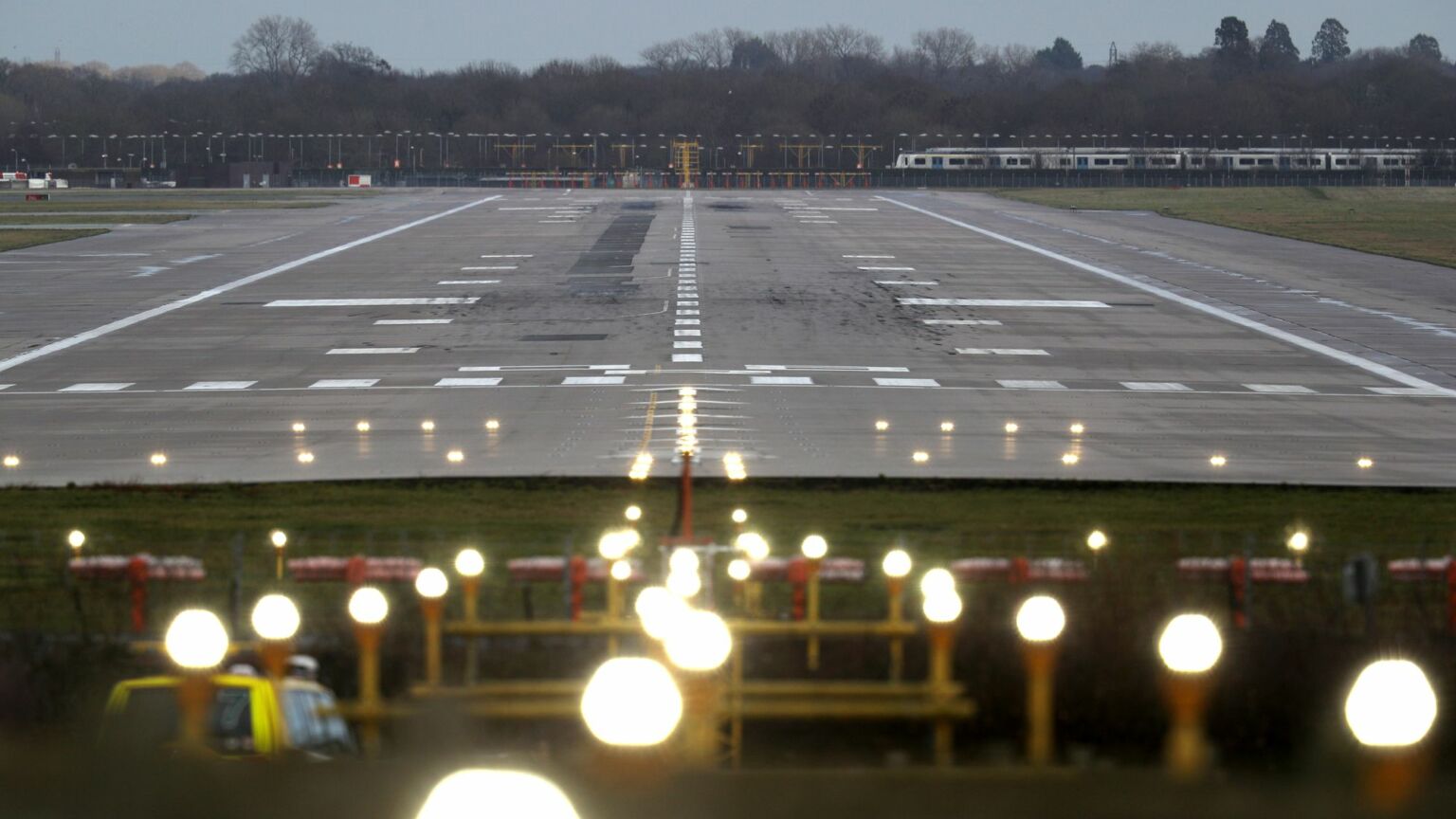Will Gatwick’s second runway ever get off the ground?
Britain’s growth-phobic Blob will use every tool at its disposal to block this essential infrastructure project.

Want unlimited, ad-free access? Become a spiked supporter.
UK transport secretary Heidi Alexander has approved a £2.2 billion privately financed plan for a second runway at London Gatwick Airport. Europe’s busiest single-runway airport, Gatwick processed 40million passengers in 2024. A second runway should allow it to handle 80million by 2030.
Will this planned second runway really happen? And does Alexander’s decision really mark a belated effort to see sense about Britain’s air travel and infrastructure needs? Don’t count on it. Instead, there is every reason to believe Gatwick’s second runway will face the same resistance as the much-needed third runway at London Heathrow and countless other national projects. This means it will be slow to get off the ground, if it does at all.
Ominously, opposition to the second runway has already taken off. Communities Against Gatwick Noise and Emissions, a local pressure group, has declared its intention to lodge a judicial review of the decision. Green Party leader Zack Polanski said a second runway at Gatwick ‘ignores basic climate science’. The local Lib Dem MP, Alison Bennett, described it as ‘disastrous for our environment, our health’. Even the BBC struck an uncertain tone, asking: ‘Can the UK expand airports and still hit climate targets?’
These views might be completely at odds with the general public, who would like to enjoy cheaper international flights, and would benefit from the thousands of extra jobs the expansion would create. Unfortunately, the demands of the climate fanatics have been consistently endorsed by the courts. Indeed, the tortured history of Heathrow’s third runway shows what might await Gatwick. In 2020, the Court of Appeal blocked the runway on the grounds that it was incompatible with the UK’s commitments under the Paris Agreement. There is no reason to think it wouldn’t reach a similar conclusion, if asked, regarding Gatwick.
What makes the case of Gatwick unique is that, technically, the wait isn’t even for a ‘new’ runway. In fact, Gatwick already has a second runway, which can currently only be used only for taxiing and emergencies. The plan is simply to move it 12 metres further north, therefore putting a safe distance between it and the airport’s main runway. This is a fairly modest proposal, in other words, yet it has already taken the government two years to agree to it.
In an interview with The Times this week, housing secretary Steve Reed talked a big game. He vowed to ‘tear down all the barriers’ to development, such as reducing the opportunities for opposition groups to lodge judicial reviews. But can we really see a Labour government taking on the judiciary, environmentalist opinion and the Blob? That is just not going to happen.
A recent parliamentary report underscores the extent of the challenge. In June, the Climate Change Committee (CCC) specifically singled out aviation as an obstacle to the UK meeting its Net Zero targets. Arguing that aviation ‘now contributes a greater share of total UK emissions than the entire electricity-supply sector’, the report added that the ‘government may need to take additional demand-management measures if aviation-sector emissions are not developing in line with Net Zero’.
Translated into English, the CCC wants to make it harder and more expensive to fly. This is a view shared almost unanimously across the UK’s growth-phobic Blob, and which has the full backing of the courts.
Getting Gatwick’s second runway off the ground is set to be a far harder task than it has any right to be.
James Woudhuysen is visiting professor of forecasting and innovation at London South Bank University. He tweets at @jameswoudhuysen
You’ve hit your monthly free article limit.
Support spiked and get unlimited access.
Support spiked and get unlimited access
spiked is funded by readers like you. Only 0.1% of regular readers currently support us. If just 1% did, we could grow our team and step up the fight for free speech and democracy.
Become a spiked supporter and enjoy unlimited, ad-free access, bonus content and exclusive events – while helping to keep independent journalism alive.
Monthly support makes the biggest difference. Thank you.









Comments
Want to join the conversation?
Only spiked supporters and patrons, who donate regularly to us, can comment on our articles.